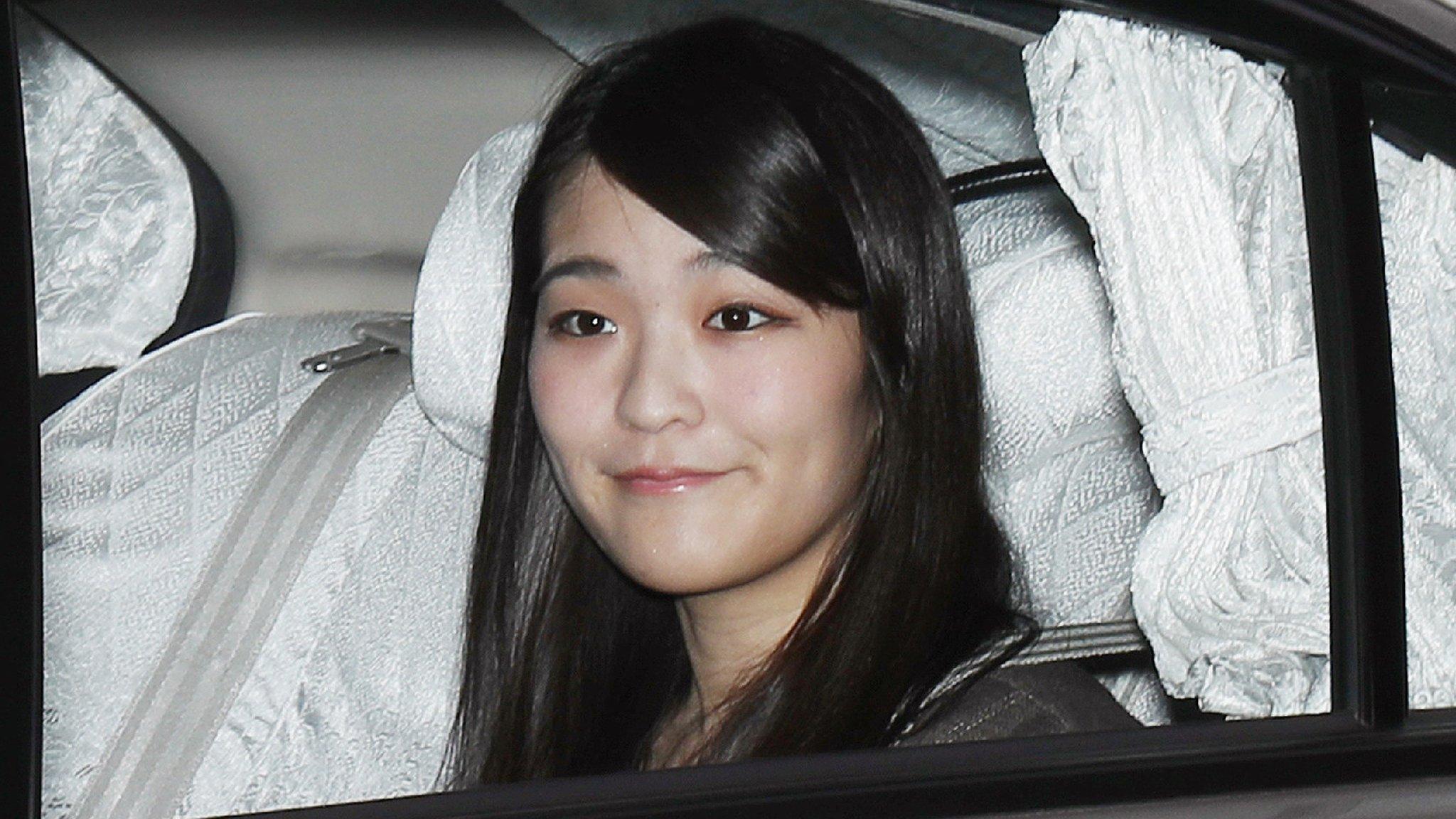Empress Masako: The Japanese princess who struggles with royal life
- Published
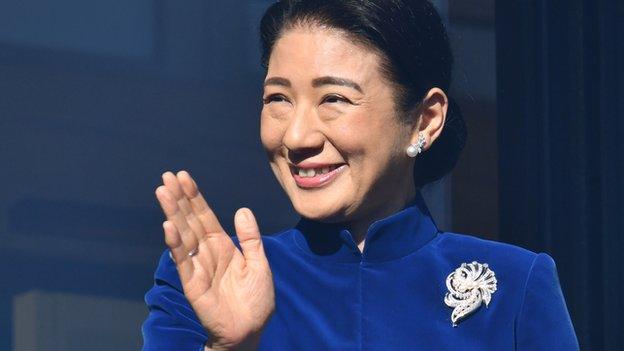
New Empress Masako is expected to be more visible in her new role
Japan's new empress, Masako, is a highly-accomplished woman who has admitted her struggles with being in the limelight as an imperial family member.
Educated at Harvard and Oxford, the 55-year-old empress is a former diplomat who became the second commoner - after former Empress Michiko - to marry the first in line to the Japanese throne.
Masako first met Prince Naruhito in 1986 and the two celebrated 25 years of marriage last year.
The two are parents to a daughter, Aiko, who was born in 2001 - Japanese laws, however, allow only male members to ascend to the royal throne.
From diplomat to princess
Born in Tokyo in 1963, Masako Owada is the daughter of a diplomat, and spent her early childhood in Moscow and New York.
She was educated at Oxford and Harvard, and worked as a diplomat before marrying Naruhito.
Fluent in English, French and German, she has also used her diplomatic skills in the past to resolve trade disputes between Japan and the US.
She is also said to be good at softball, skiing and tennis.
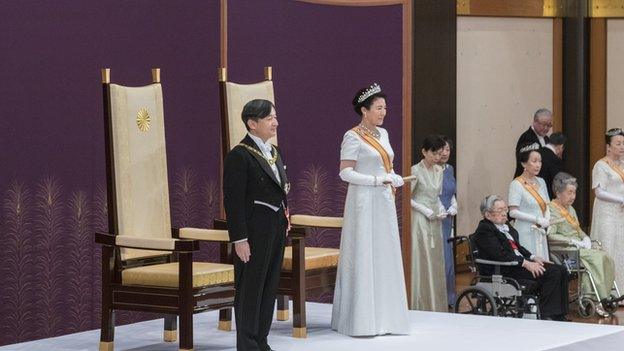
Japan's new emperor Naruhito ascended to the throne on 1 May
She first met Prince Naruhito in October 1986 at a party to welcome visiting Spanish Princess Elena.
Media reports say she was one of only three women from 800 applicants who passed Japan's Foreign Ministry entrance exam in 1987
Masako left the ministry after her engagement to Naruhito became official in January 1993. They got married in June that year. Around 190,000 people greeted the newly-weds as their wedding procession passed through the streets of central Tokyo.
Dealing with imperial life
But the transition from a commoner to a princess was not smooth. Princess Masako suffered a miscarriage in 1999. She later gave birth to a girl in 2001.
In May 2004, Naruhito said there were "developments that were regarded as denying Masako's career [as a diplomat] as well as her personality."
Masako developed a stress-related illness around 15 years ago - described officially by the Imperial Household Agency as an "adjustment disorder" - causing her to withdraw from all official duties for over a decade.
"The situation in which I could not visit other countries for six years required a great effort for myself to adjust," she said at a press conference in 2002.
Return to public sphere
In recent years, Masako has slowly been getting back into the public sphere. After the March 2011 quake and tsunami, she and her husband visited evacuation centres to meet people affected by the natural disaster.
In 2013, they visited the Netherlands, marking Masako's first trip overseas in 11 years. The following year, she attended a banquet in Japan for visiting Dutch royals.
On her birthday in December 2018, she expressed willingness to embrace her new role as empress though she had also admitted to feeling "insecure".
"I want to devote myself to the happiness of the people, so I will make efforts to that end while gaining more experience," she said.
As empress, Masako - who has been compared by some to Britain's Princess Diana - will be expected to engage more with the public.
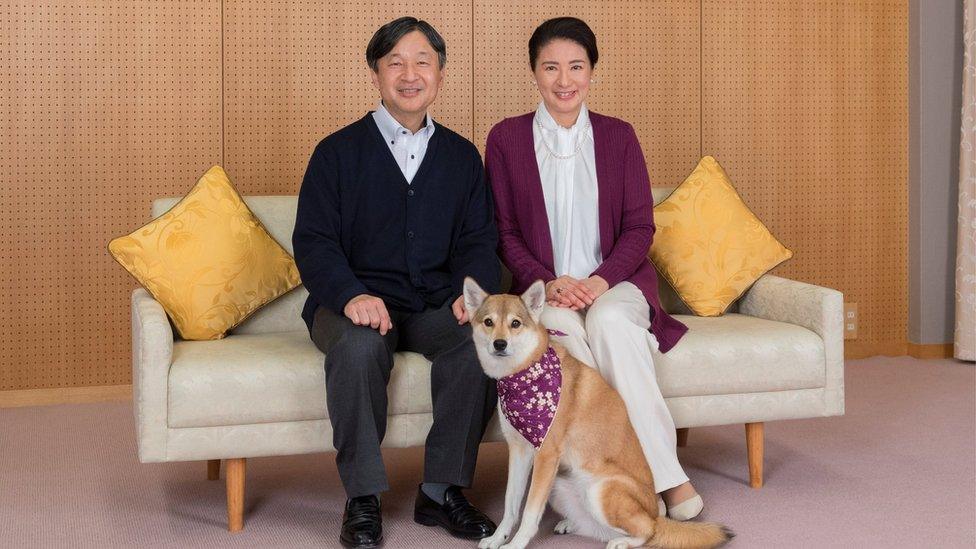
New Empress Masako pictured with Emperor Naruhito and their pet dog last year
Naruhito said last year that he would want his wife to gradually resume public activities, "performing what she can one by one".
Their daughter Aiko is now 17 and the family share a love for pets - they have a dog named "Yuri" and two cats "Mii" and "Seven".
Role model for women
Her struggles as a princess have resonated in the local media but some feel her experience will be helpful in her new role.
"It is fair to say her life has not been easy since she became princess due to lack of opportunities to visit foreign countries and the pressure to have a son who can ascend to the throne", the Mainichi Shimbun newspaper says.
As a princess, Masako has had opportunities to learn about issues such as child abuse, poverty and global warming, the paper notes.
Some experts feel she could become an advocate for mental health.
"There's a lot of taboos in Japan around mental health issues... she can make a big difference", Kenneth Ruoff, a professor of modern Japanese history at Portland State University, told Kyodo.
On social media too, many say she could emerge as a good role model for women.
"I believe Masako can become the empress who can understand many Japanese mothers who suffer from mounting pressure amid a message that women should do more. Women in Japan face an ordeal that they have to give up their career after marriage. They are even not considered a proper adult if they do not have children", a user on Yahoo Japan "sp7*****" wrote.
Reporting by Upasana Bhat and Tae-jun Kang.
BBC Monitoring , externalreports and analyses news from TV, radio, web and print media around the world. You can follow BBC Monitoring on Twitter, external and Facebook, external.
- Published1 May 2019
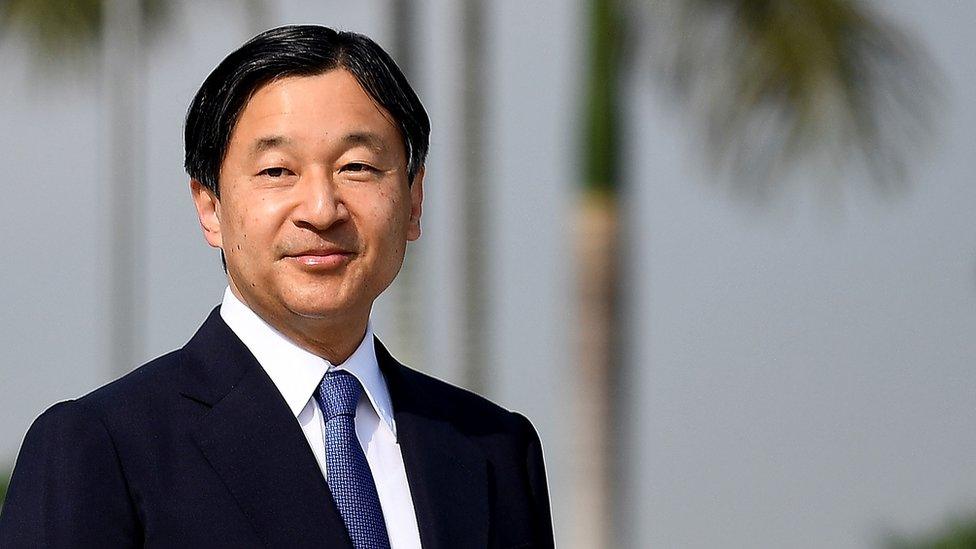
- Published30 April 2019
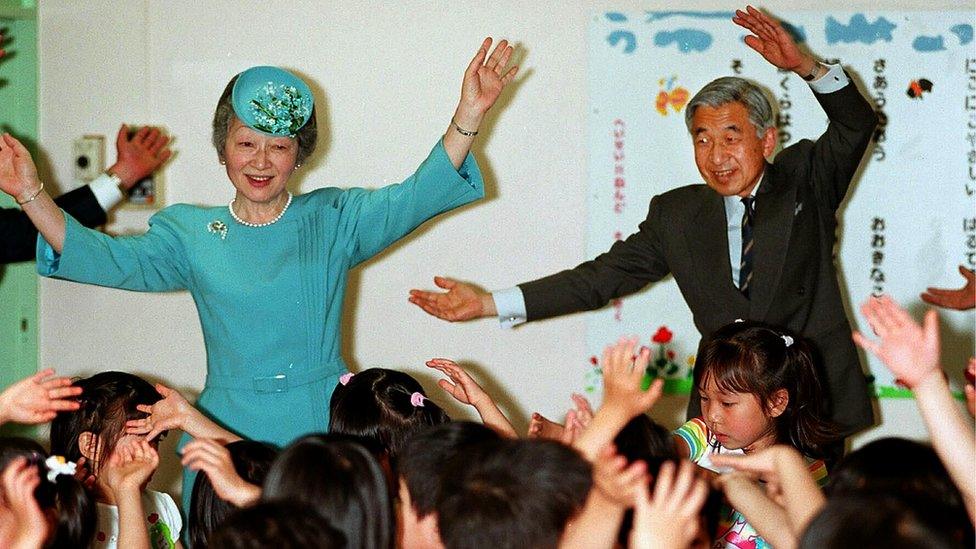
- Published27 April 2019
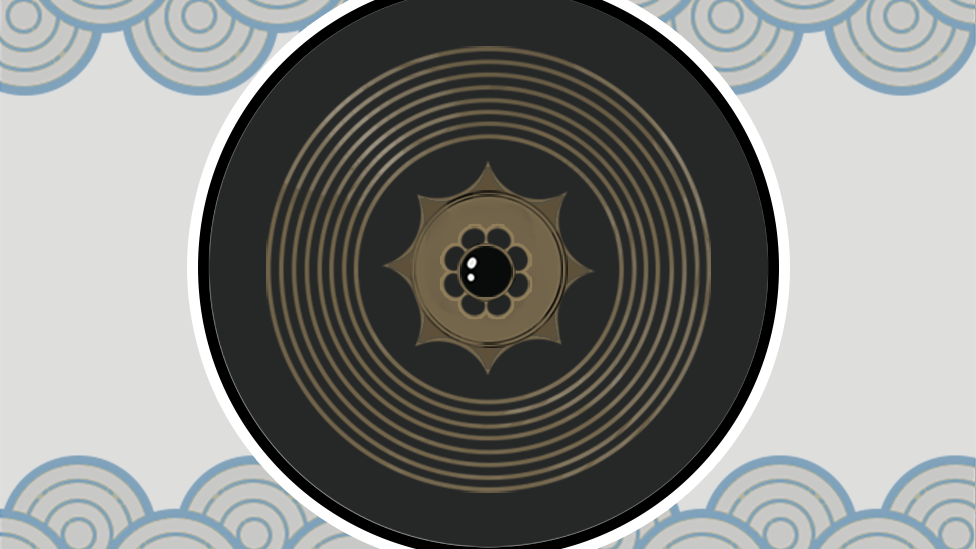
- Published26 April 2019
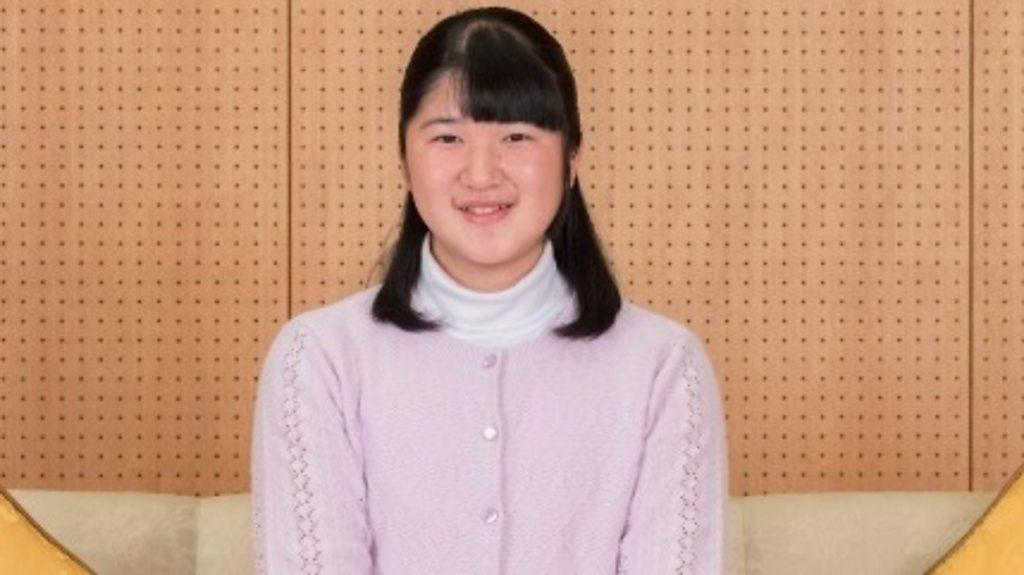
- Published1 May 2019
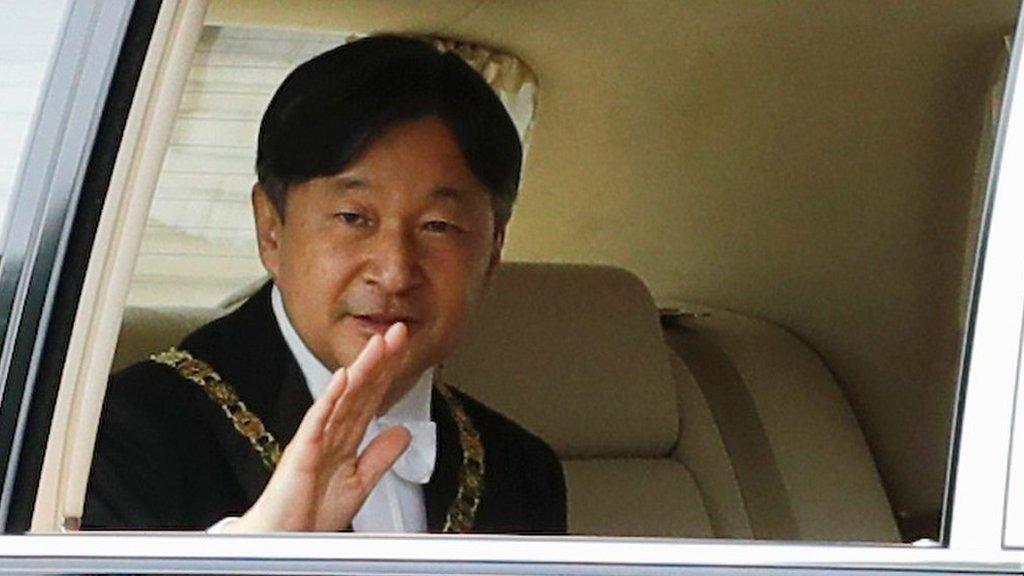
- Published19 May 2017
